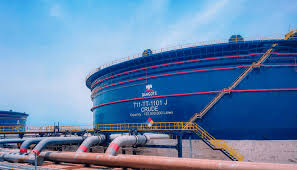
The rollout of Dangote Industries Ltd.’s specialized tanker fleet in Nigeria has been significantly slowed, raising concerns over the timely distribution of fuel across the country.
According to Devakumar Edwin, Vice President of the conglomerate, only 15% of the 4,000 trucks ordered have arrived, as limited availability of ships from China has delayed simultaneous deliveries. Originally planned for mid-August, the staggered distribution has highlighted the group’s reliance on international partners.
“This logistical bottleneck is a temporary setback,” Edwin said, noting that remaining vehicles are expected to arrive soon, allowing the project to gradually resume.
The $469 million investment in the fleet underscores Nigerian billionaire Aliko Dangote’s ambition to control the entire supply chain from refinery production to delivery. However, reliance on foreign shipping has revealed vulnerabilities.
Each delayed tanker slows fuel distribution to key urban and industrial centers, potentially affecting market supply and local economic activities dependent on reliable fuel access. Analysts suggest that exploring regional partnerships or diversifying suppliers could mitigate such risks in the future.
The fleet is crucial to Dangote Industries’ broader strategy of reducing Nigeria’s dependence on imported fuel.
The refinery itself, one of Africa’s largest, is designed to produce millions of barrels per day, reinforcing energy self-sufficiency while supporting domestic industrial development. The dedicated tankers were intended to ensure direct, efficient delivery of refined products to domestic markets.
The delays have not undermined the overarching goals of Dangote Industries, but they underscore the logistical fragility of projects reliant on international partners. Experts highlight the importance of contingency planning, alternative shipping routes, and potential expansion of a domestic transport fleet to secure distribution.
As the remaining tanker trucks arrive in the coming weeks, their deployment will be closely watched. The success of this phase will not only determine the efficiency of fuel distribution but also serve as a critical measure of Dangote’s ability to consolidate Nigeria’s energy self-sufficiency and advance its industrial ambitions.



